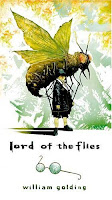 I had picked up this book a couple of years back but somehow left it even before completing the first chapter. Now I wonder why. I hope it was lack of time or another such reason rather than not liking the book. Whatever, this time I am glad I read it.
I had picked up this book a couple of years back but somehow left it even before completing the first chapter. Now I wonder why. I hope it was lack of time or another such reason rather than not liking the book. Whatever, this time I am glad I read it.A should-read if not a must-read, my intention is not to summarize the story. I will leave most of it for the curious readers to find out for themselves.
The God of Small Things.
“
The story is not new. The two-egg twins are the protagonists. Their mother is a divorcee, educated as well, totally looked down upon by society, by her own family as well. And then she tops it up by loving a Paravan. The twins think of themselves as one, like twins very often do. The family’s distress falls upon these two kids who suffer for no fault of their own. The story begins with the funeral of an English cousin (the twins’ cousin); somehow the twins are held responsible for this. How? Why? You have to read on. For a long time.
For over half the book, the suspense and drama runs high. One by one the pieces fall into place. The narrative moves back and forth in time. Suddenly you find yourself in the present and as suddenly, you are thrown back to the past. There is a lot of wordplay and details, so much so that at times it becomes too much, but there are scenic descriptions of God’s Own Country. Towards the end there is an awesome rendition of a Kathakali performance in a temple. I am tempted to watch a live Kathakali performance now; I want to see if it is as good to see as it was to read.
Amazingly sarcastic, Arundhati Roy takes a dig, no, a lot of digs, at Indian caste distinctions, at how Indians go ga-ga over white skinned foreigners, at how old maiden aunts take it upon themselves to interfere in everything. There are loud glimpses of male chauvinism throughout the book, with a woman being beaten by a brass vase everyday, by her husband of course, just because she was running a successful pickle business; about women’s education: He decided that since she couldn’t have a husband there was no harm in her having an education and so on.
There are some thought-provoking statements too. It is curious how sometimes the memory of death lives on for so much longer than the memory of the life that it purloined. This is so true. Also some more satire like All Indian mothers are obsessed with their sons and are therefore poor judges of their abilities. I liked the book but I loved it for its sarcasm!
A thought: Ammu, the twins’ mother, found herself badly cheated the first time she fell in love. Her husband turned out to be a drunkard with no morals. Of course she was badly hurt. But she fell in love again, if at all it was love. What about the age-old adage: Once burnt, twice shy?








